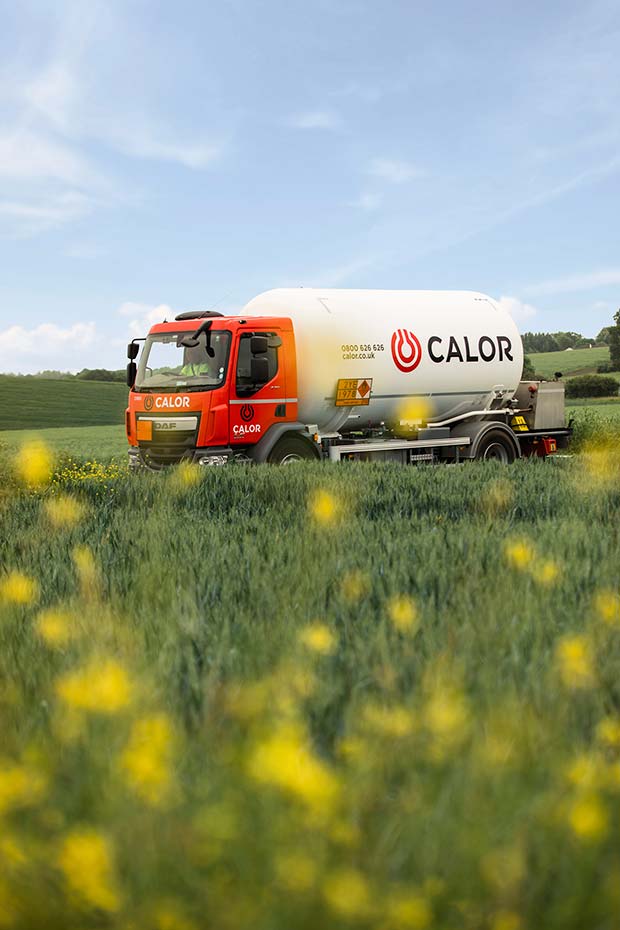The consultation on the Government’s Clean Air Strategy closed recently, setting out plans to reduce roadside nitrogen dioxide concentration in the UK. Yet, argues Calor, the UK’s leading supplier of liquefied petroleum gas (LPG) and liquefied natural gas (LNG), it is vital that freight and haulage industry end-users are consulted fully in this process in order to make the transition to cleaner vehicle technologies as simple and costefficient as possible.
 There are estimated to be 120,000 heavy goods vehicles (HGVs) currently operating on Britain’s roads, accounting for 27 per cent of roadside NOx emissions. Recent reports from Policy Exchange demonstrate that by adopting gas-based fuels, fleet managers can markedly improve emissions from these vehicles in a short time-frame.
There are estimated to be 120,000 heavy goods vehicles (HGVs) currently operating on Britain’s roads, accounting for 27 per cent of roadside NOx emissions. Recent reports from Policy Exchange demonstrate that by adopting gas-based fuels, fleet managers can markedly improve emissions from these vehicles in a short time-frame.
However, if moving to gas-vehicle technology is to help with UK-wide efforts to cut pollutants, it requires a greater commitment towards the development of a nationwide refuelling network, especially for LNG-fuelled vehicles, to encourage hauliers to invest in this technology, without compromising their operational efficiency.
Commenting on the strategy, Mark Gilks, Transport Specialist from Calor said:
“Calor already operates the UK’s largest national network of LNG refuelling stations and, as a major supplier, is keen to develop the infrastructure further to support the move to alternative fuels such as natural gas.
“Elsewhere, we have found that the UK’s fuel duty escalator had discouraged customers to move to LPG for transport, believing that diesel was a better choice for the environment.
“Following the Chancellor’s announcement at the Autumn Budget in 2017, this escalator has now been removed which is a positive step to enable end-users to benefit immediately from a cleaner alternative to diesel.”
As a result, Calor continues to work with its customers to introduce dual-fuel technology, which, with a simple conversion, allows the engine’s combustion chambers to burn both LPG and diesel, reducing the HGV’s fuel costs and emissions.
Dual fuel technology requires only a small capital outlay, and when using trusted conversion technology can be installed quickly.
Though the exact benefits of conversion may be dependent on different variables – such as the vehicle’s running profile – based on a 25 per cent substitution of LPG to diesel, cost-savings of 10-15 per cent can be delivered, alongside a six per cent reduction in CO2.1
Harmful emissions are also reduced as LPG is 86 per cent lower in NOx emissions than diesel and has 98 per cent fewer particulate matter (PM) emissions, which are also lead and soot-free.
Mark continues, “In addition to our LNG and LPG offerings, we have also introduced BioLPG, a new, renewable fuel that can be used alongside dual fuel technology. Available exclusively from Calor, BioLPG expands upon LPG’s already-established benefits, offering a chemically-identical alternative created from renewable feedstocks.
Using BioLPG offers HGV operators CO2 savings of between 50 and 80 per cent when compared with conventional LPG, based on a 100 per cent BioLPG substitution.2 “BioLPG is also a drop-in fuel.
This means that for hauliers already using LPG, there is no need to alter any equipment or supply infrastructure so, fleets using dual fuel technology can improve their environmental impact even further, and those converting from diesel will notice a dramatic difference.”
Any move to increase funding for clean air zones and to place tighter restrictions on pollutants from vehicles should be welcomed as the UK moves to improve air quality across the UK. This is an important area of environmental protection, but it is equally important that infrastructure and technology can keep pace with changing demand to make the transition as simple as possible for the industry.
For more information on LNG, LPG and BioLPG for the freight industry, please visit www.calor.co.uk/biolpg.
1 Fuel cost savings based on one HGV travelling 100,000 miles over a year period, with 25 per cent LPG substitution, compared to a purely diesel-fuelled HGV equivalent.
2 Emissions saving compared to conventional LPG and only applicable to the LPG element of total dual fuel.
CALOR




Comments are closed.